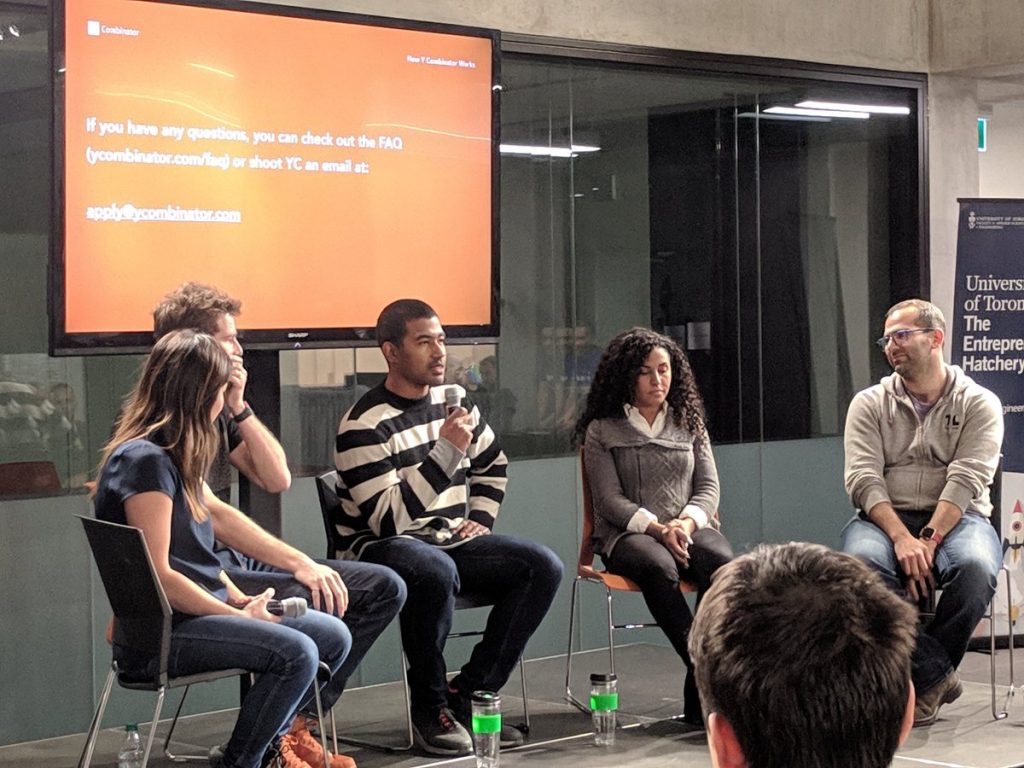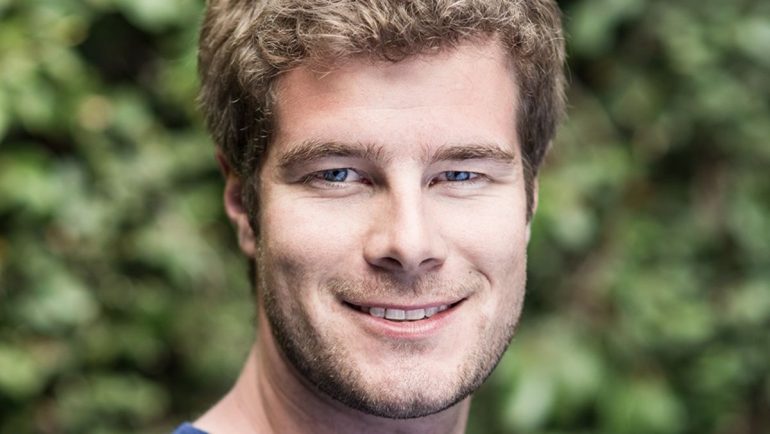As Eric Migicovsky looked at volunteers setting up for Y Combinator’s recent event at the University of Toronto’s Hatchery, he remarked that even the chairs were orange to match YC’s brand. Preparing for his talk, scheduled to start not ten minutes later, he half-jokingly attributed the attention to detail to fellow Y Combinator partner Kat Mañalac’s meticulous planning.
Migicovsky gained global recognition as the founder of Kitchener-Waterloo wearables startup Pebble. After taking the startup through Y Combinator in 2011, Migicovsky and Pebble were responsible for some of the largest Kickstarters of all time, rebuffing acquisitions offers as high as a reported $740 million in 2015.
By December 2016, however, Pebble was insolvent, and the company’s talent and IP were sold to Fitbit in 2017 for just over $30 million CAD. After departing the company, Migicovsky returned to tech a year later when he joined Y Combinator as a partner.
BetaKit spoke with Migicovsky at the event about his new role and the transition from running one company for nine years to mentoring nine companies a day.
Think your #startup should go through @ycombinator? @ericmigi shares 5 things you need:
1. Make something people want
2. Share examples of what you can do
3. Be a force of nature
4. Mission matters to people
(Bonus) 5. It's not about idea, it's about who likes the idea pic.twitter.com/v7UolqYkdA— PulseBlueprint (@PulseBlueprint) January 18, 2019
From founder to mentor
The evening kicked off with Migicovsky explaining Y Combinator’s goals and providing tips on how to get into the startup accelerator, something the audience took fervent notes on.
After his short talk, Migicovsky moderated a panel featuring himself and three Toronto-based Y Combinator alumni. Each panelist returned to Toronto after the program, something Migicovsky noted is the new model for Y Combinator (originally, the accelerator all but required founders to move their startup to Silicon Valley, a move Migicovsky and the Pebble team made in 2011).
When an audience member asked the panel what advice they would give to their younger selves, Migicovsky had a lot to say.
“In the past, I didn’t move fast enough,” he said. “It took two and half years to ship our first watch. I set intermediate goals like fundraising. I didn’t focus enough on selling and getting customers.”

Because Y Combinator accepts all kinds of tech-based companies, there is no common thread connecting the portfolio to a thesis. However, the volume of companies going through the program means that mentors like Migicovsky have effectively seen it all and must distill lessons learned to offer support to both new companies and alumni.
“I went from running one company for nine years to mentoring nine companies before noon,” Migicovsky told BetaKit after the panel about his shift from Pebble founder to YC partner.
He went on to say that his experience with Pebble “barely at all” affects how he mentors Y Combinator startups.
“I went from running one company for nine years to mentoring nine companies before noon.”
“YC is interesting because we’ve now seen hundreds, thousands of companies,” Migicovsky said. “Individual startup experiences are interesting and fun and anecdotally cool, but in the grander scheme of things irrelevant to most other startups. So most of the advice we give is drawn from the hundreds of companies we’ve seen at YC.”
YC’s program now has multiple parts when it comes to supporting accelerator alumni: resources like bulk discounts on service providers and free proprietary technology to help companies grow; a Series A program for alumni raising; a growth program for alumni scaling very quickly; and a Series B program for alumni farther down the fundraising path.
All of this nets out, Migicovsky said, to a lot of lessons that build the Y Combinator mentorship brain.
When it comes to scaling the accelerator, however, in-person mentorship isn’t always feasible. To combat this, Y Combinator uploaded all of its learnings onto StartupSchool.org, a free ten-week online course for building a business. Intended initially as a way to get more companies ready for Y Combinator, the program also documents learnings built over many years and thousands of startups.
Digitized mentorship scales better than the in-person Canadian tour Y Combinator is currently on, and has additional benefits: the distributed learning can often be the catalyst for new ecosystems to be created or grow in ways they might not have been able to previously without local support. Migicovsky drew a comparison to the ecosystem development he’s seen over the years in Waterloo.
“Waterloo used to be a one startup town,” he said. “Now there are thousands of startups. It’s incredible. I think Valley companies aim a bit higher, but I think [the difference is] indistinguishable now with the quality of the founders and company outcomes.”


